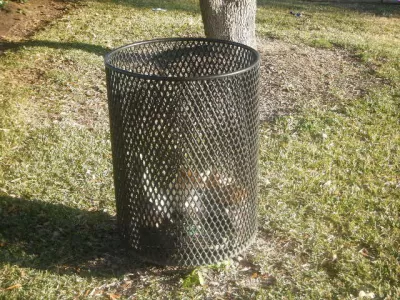Philadelphia looked at how interventions can change recycling and littering behavior.

Nandi O'Connor of GovLabPHL discusses two experiments the city of Philadelphia conducted to better understand how behavioral science could be used to increase recycling and decrease littering.
The first experiment targeted recycling behavior. While the city makes containers available to residents at designated locations, it provided lidded recycling bins to residents on routes in two neighborhoods in this case. The effect was inconclusive in one neighborhood, but recycling volumes increased in the other.
The other intervention involved increasing or decreasing the number of trash receptacles in various parks and along corridors in the city. Overall, the findings showed that increasing the number of trash containers resulted in city staff spending 30 minutes less per day picking up litter.
"We learned that existing data collection procedures are not always created for the purposes of evaluation, and the results have inspired us to improve data collection procedures for future experiments," says O'Connor. She also notes that the results will inform policy decisions as the city works to reach its zero-waste goals.
FULL STORY: How we’re using behavioural science to decrease litter in Philadelphia

Trump Administration Could Effectively End Housing Voucher Program
Federal officials are eyeing major cuts to the Section 8 program that helps millions of low-income households pay rent.

Planetizen Federal Action Tracker
A weekly monitor of how Trump’s orders and actions are impacting planners and planning in America.

Ken Jennings Launches Transit Web Series
The Jeopardy champ wants you to ride public transit.

How South LA Green Spaces Power Community Health and Hope
Green spaces like South L.A. Wetlands Park are helping South Los Angeles residents promote healthy lifestyles, build community, and advocate for improvements that reflect local needs in historically underserved neighborhoods.

Sacramento Plans ‘Quick-Build’ Road Safety Projects
The city wants to accelerate small-scale safety improvements that use low-cost equipment to make an impact at dangerous intersections.

How Project Connect Would Change ‘The Drag’
A popular — and sometimes deadly — Austin road will exchange car lanes for light rail.
Urban Design for Planners 1: Software Tools
This six-course series explores essential urban design concepts using open source software and equips planners with the tools they need to participate fully in the urban design process.
Planning for Universal Design
Learn the tools for implementing Universal Design in planning regulations.
Heyer Gruel & Associates PA
Ada County Highway District
Institute for Housing and Urban Development Studies (IHS)
City of Grandview
Harvard GSD Executive Education
Toledo-Lucas County Plan Commissions
Salt Lake City
NYU Wagner Graduate School of Public Service



























